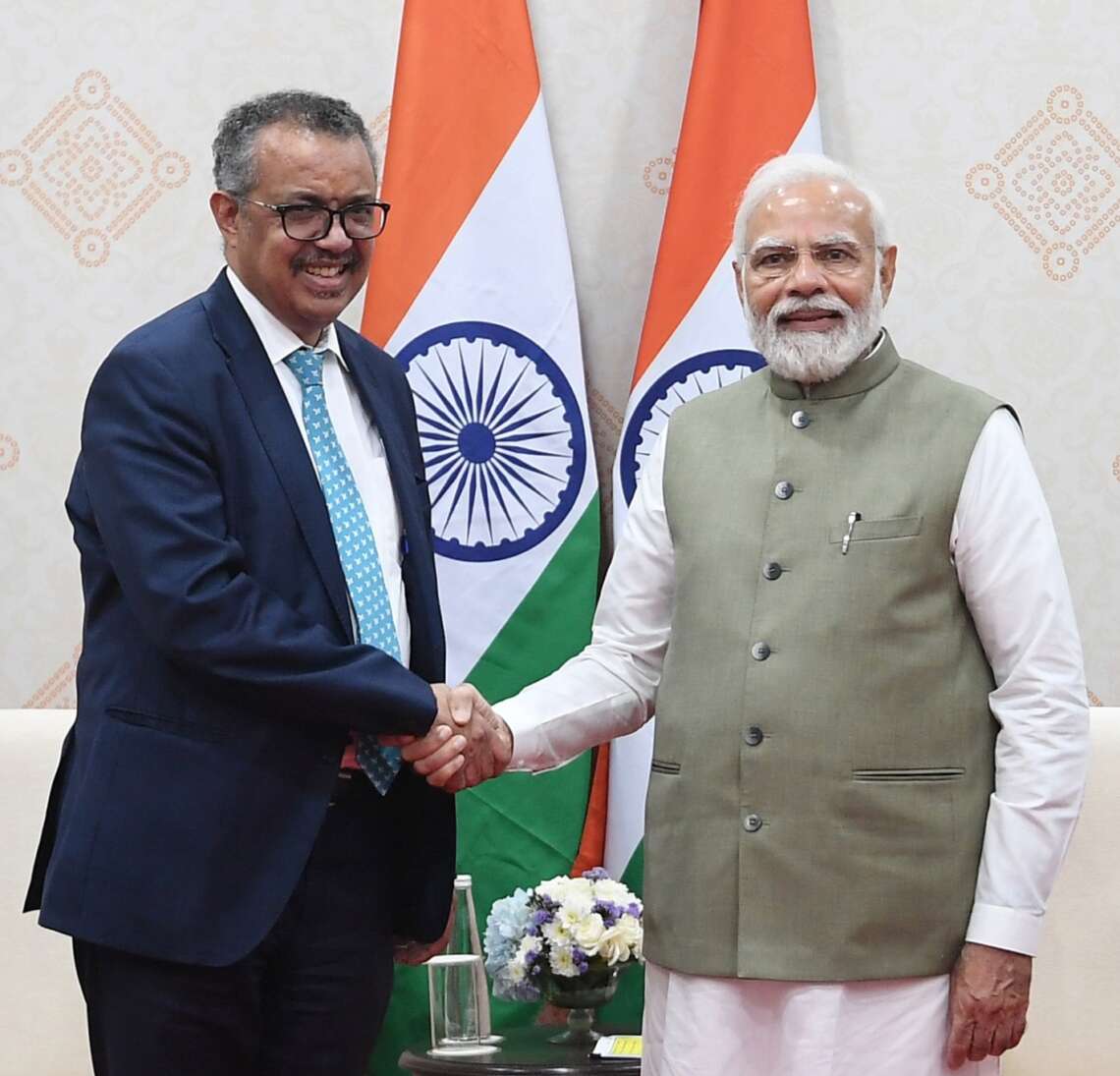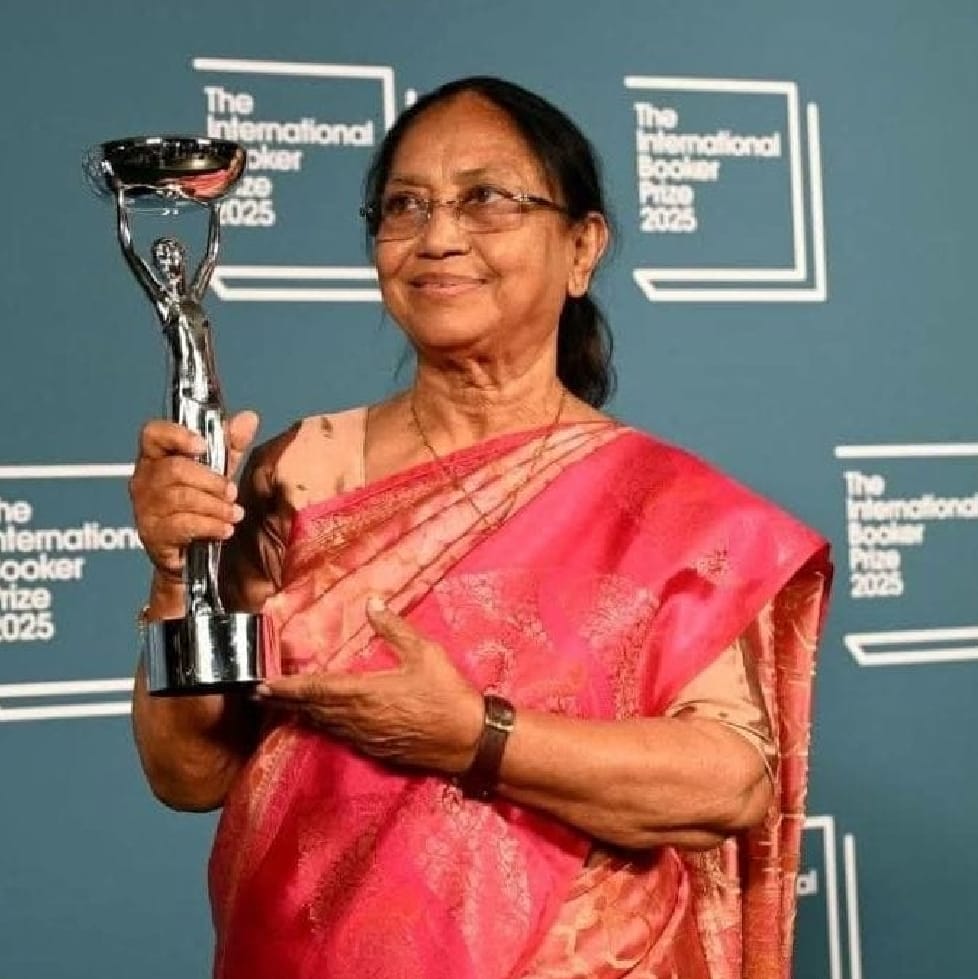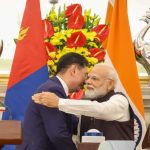PM Modi, addressing WHA in Geneva virtually, underscored India’s commitment to a healthier and more inclusive world under the unifying theme “One World for Health.”
In a landmark development for global health governance, the World Health Organization (WHO) on Tuesday adopted the world’s first-ever Pandemic Agreement, aimed at ensuring better international preparedness, response, and equity in the face of future health emergencies. The consensus decision came during the 78th session of the World Health Assembly (WHA) in Geneva, which was virtually addressed by Indian Prime Minister Narendra Modi.
PM Modi, speaking from New Delhi, underscored India’s commitment to a healthier and more inclusive world under the unifying theme “One World for Health.” His remarks came as WHO Director-General Dr Tedros Adhanom Ghebreyesus publicly thanked India for its support and leadership in pandemic preparedness efforts.
“Namaste, Prime Minister @narendramodi, for joining us virtually at a historic #WHA78 when the Pandemic Accord was adopted. We are grateful for India’s commitment and support to @WHO,” Dr Tedros posted on social media platform X.
During his address, Prime Minister Modi highlighted three core principles for achieving a healthier global future—inclusion, integrated vision, and collaboration. Citing India’s domestic health reforms as a model, he drew attention to the Ayushman Bharat scheme, the world’s largest public health insurance programme, covering 580 million people and recently expanded to include all Indians over 70 years of age.
“Inclusion is at the core of India’s health reforms,” Modi said. “Ayushman Bharat provides free treatment to over half a billion people. It reflects our belief that healthcare must reach the most vulnerable.”
He congratulated the WHO and its 194 member states for successfully concluding negotiations on the Intergovernmental Negotiating Body (INB) Treaty, also referred to as the Pandemic Agreement. “This shared commitment to build a healthier planet is a moment of unity and resolve. Let us ensure that no one is left behind,” he added.
The adoption of the Pandemic Agreement represents the culmination of more than three years of negotiations, a process launched in response to the devastating global toll of the COVID-19 pandemic, which claimed millions of lives between 2020 and 2022. In December 2021, WHO member states initiated the Intergovernmental Negotiating Body to create a legally binding framework that could prevent a recurrence of such a health disaster.
Following 13 formal rounds of negotiations and numerous informal consultations, the final agreement was completed in April this year and adopted in Geneva this week. It is only the second international legal agreement developed under Article 19 of the WHO Constitution, the first being the Framework Convention on Tobacco Control adopted in 2003.
In a press briefing on Tuesday, Dr Ghebreyesus hailed the agreement as “a victory for public health, science, and multilateral cooperation.”
“It will ensure we can better protect the world from future pandemic threats,” he said. “The agreement is also a recognition by the international community that our citizens, societies, and economies must not again endure the devastation witnessed during the COVID-19 pandemic.”
A central element of the agreement is the creation of a Pathogen Access and Benefit Sharing System (PABS). This system is designed to guarantee timely and equitable access to vaccines, diagnostics, and therapeutics during a pandemic. Pharmaceutical manufacturers participating in PABS will be required to allocate 20 per cent of their real-time production of essential medical tools to the WHO. These will then be distributed globally based on public health risk and urgency, with a specific focus on developing nations.
This access mechanism is seen as a direct response to the vaccine nationalism and supply-chain breakdowns that characterised the initial phases of the COVID-19 response, when many low-income countries were left waiting months for vaccine shipments.
The Pandemic Agreement will enter into force after 60 countries ratify it through their respective national legislative bodies. Once the PABS annex is formally adopted, the agreement will be opened for signature.
WHO has emphasised that the new agreement upholds national sovereignty in health policymaking but encourages international solidarity when responding to global health threats. The balance between respecting domestic decision-making and fostering cross-border cooperation was one of the most sensitive aspects of the negotiations.
India’s active participation in the drafting process, combined with its extensive domestic healthcare infrastructure and pharmaceutical capacity, positions it as a key stakeholder in implementing the agreement. Its globally distributed vaccine production capabilities, already proven during COVID-19 through initiatives such as Vaccine Maitri, further underscore its role in the new framework.
The agreement’s significance goes beyond the realm of healthcare. By building a legal and operational foundation for future pandemic response, it aims to prevent the economic, social, and psychological disruptions that characterised recent global health emergencies.
As the world collectively turns a page on the pandemic era, the adoption of the Pandemic Agreement stands as a major step toward a more secure, equitable, and coordinated global health system.














